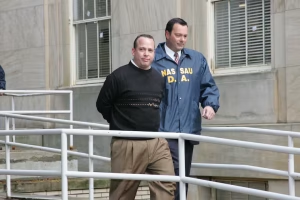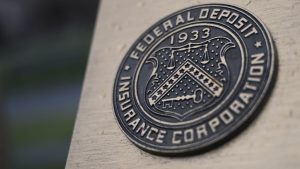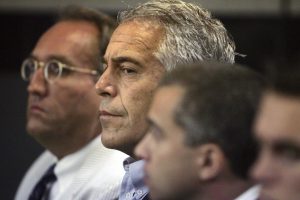The authors of this piece are Catherine Robinson and Matthew Ware, both of whom are solicitors for Byrne and Partners - a dedicated civil and criminal litigation practice specialising in financial crime.
Another day, another bank scandal. Another poster boy for city excess and the greed is good philosophy of wealth. His career, perhaps his reputation in tatters, regulators and tenacious financial journalists search for answers but some fashion the tale, and wonder ultimately, will it be Leo or Ewan McGregor that absorbs the character and makes it their own?
They are flippant words to be sure, but the notion of the rogue trader has played heavily on the media’s penchant for storytelling. And who can blame them? A narrative with characters drawn from the imagination simplifies and often enhances the story telling and livens up what otherwise might be a fairly dull account of financial analysis, complex trading strategies and the mystery of quants.
Recurrent themes
There are the metaphors – the bad apples spoiling the bunch. Then there are the monikers. Personalities can be big in the market and nicknames are common whether earned over time and often playing off physical characteristics, reflecting identification with the trading community or bestowed (often cruelly) by a single episode and forever inked.
But what about the notion of the rogue trader? Is it true? And is it fair?
The answer of course, is that that it is not simple, each case must be evaluated on its own merits to determine whether the latest financial scandal was a systemic failure within a financial institution or the devious ways of a master manipulator or indeed as is most often the case, an uncertain mix of both with the heady addition of big juicy bonuses thrown in.
Who puts the rogue in rogue trader?
A rogue trader is understood generally to be an employed trader in the banking industry who makes unauthorised trades. Typically, consequent behaviour might be false accounting or falsification of records to hide the fact of the rules being broken and often, the result is a huge loss for the institution to announce to the market. Nick Leeson was probably the most famous such individual.
A Brief History of Roguish Trading
Nick Leeson 1992-1995
Nick Leeson was a Watford raised son of a plasterer who quickly rose to become the chief trader in the Singapore office of Barings Bank- then the world’s second oldest bank. In the early nineties he engaged in unauthorised trading which while initially profitable, soon ran into spectacular losses. While hiding his trading in an error account, Leeson attempted to take riskier positions to recoup losses but ultimately could not salvage the £800 million loss position. Leeson fled Singapore while Barings was declared insolvent. Upon extradition to Singapore, Leeson was charged and pleaded to two counts of deceiving the bank’s authorities and cheating the Singapore exchange. The action brought down Barings Bank while Leeson was sentenced to 6.5 years in Changi Prison where he wrote a book about his trading exploits.
Toshihide Iguchi 1983-1995
Iguchi wrote the book on rogue trading, penning “My Billion Dollar Education: Inside the Mind of a Rogue Trader” in 2014. Iguchi was a Japanese national and he served in several senior trading roles at the New York branch of Daiwa Bank. Iguchi’s clandestine trading, which was motivated by a need to recoup and hide earlier losses, carried on for almost 12 years and appeared, at least at times, to be partly sanctioned by the bank before they filed a criminal referral letter on Iguchi and provided his confession letter to the FBI. Iguchi was sentenced to four years in prison and was released in 1999.
Jerome Kerviel 2008
Jerome Kerviel was a junior trader in the Delta One products team in Societe Generale’s Paris office engaging in program trading, exchange traded funds, swaps, index and quantitative trading. Kerviel had apparently been trading beyond his authority by approximately €49.9 billion in European stock index futures and, it was alleged, had concealed the activity by creating losing trades intentionally to offset the early gains. The bank closed out the massive positions during January 2008 while the market was down and losses totalled approximately €4.9 billion. In October 2010, Kerviel was sentenced to 5 years in prison after being convicted of abuse of confidence and illegal access to computers, though he denies wrongdoing.
Kweku Adoboli 2008-2011
Kweku Adoboli was a director of UBS’s Global Synthetic Equities Trading team in London. Adoboli also engaged in unauthorised trading on exchange traded index future positions. The subsequent losses (which eventually hit £2 billion) were hidden with fictitious offsetting strategies, including the booking of unmatched trades to internal accounts and using forward settling ETC cash positions. Adoboli was convicted in London of Fraud by Abuse of Position and was sentenced to 7 years in prison.
First as Tragedy...
In varying degrees, these stories sound warning bells on institutional complacency and in some alarming cases, complicity.
By way of example, in fining UBS £27 million for the Adoboli episode, the Financial Conduct Authority (FCA) detailed UBS failures in supervision, systems and controls and escalation of identified risk management issues. The conclusions were underpinned by an independent investigation (the terms of reference of which are not detailed).
The FCA’s findings however said nothing of the culture of UBS and Adoboli has been an outspoken critic of that culture since his release from prison. He claims that one of his bosses took him aside and said “Push the boundaries until you get a slap on the back of the wrist”.
Then as Farce...
In this context, we should not forget one of the most pervasive, if difficult to elucidate, scandals of recent times, London Interbank Offered Rate (LIBOR), for which Tom Hayes and various ex-Barclays employees currently reside at Her Majesty’s pleasure. While not strictly just trading and certainly, if the breadth of the scandal is anything to go by, not all rogue, LIBOR is a striking example of pervasive and prevalent bank misbehaviour for which the ultimate punishment of loss of liberty fell to be served by the unlucky few. To be clear, everyone else was doing it has never been a particularly good legal (nor palate-able) defence and “my boss told me it was okay” has uncomfortable shades of Nuremburg, but consider the lightning fast acquittals of Read and others, brokers whose lack of seniority and significance in the context of the alleged manipulation may have contributed to their acquittal.
LIBOR, in many ways, seems akin to a sports match where players routinely bent the rules to breaking point, most clubs condoned or encouraged it and the umpires turned a blind eye for years only to reprimand the clubs and pursue some of the wrongdoers (generally the younger traders and submitters for whom Bloomberg Messenger recorded all) for example-making.
Stacking the deck?
LIBOR has also highlighted a very real trend of the bank or firm as policeman of its own bad behaviour. External law firms are hired to conduct an investigation and then to negotiate with the regulator over a suitable penalty and narrative to be formalised.
In regulatory settings, these are by way of a Final Notice as agreed between the FCA and the bank. However, several of these notices are now in issue with traders and submitters challenging their identification (usually by way of a description of their position within the bank) as the instruments of bank wrongdoing without the benefit of disclosure or representation.
Since the ground-breaking Upper Tribunal and Court of Appeal decisions in FCA v Macris, a number of traders and submitters implicated in allegations of LIBOR and other misconduct have done exactly this and we await the final determination by the Supreme Court with respect to Macris, but the noticeable change of approach by the FCA in this respect has given individuals a real chance to challenge findings against their employer which relates to their own conduct.
On the criminal front, there has also been change. In the last reporting year, the Serious Fraud Office (SFO) - a body tasked with investigating and prosecuting the most serious fraud and corruption cases - could only post a 31.6% conviction rate. A figure dwarfed in comparison to the Crown Prosecution Service’s (CPS’) 83.1% success rate in more general crime, suggested perhaps that juries appear reluctant to convict their corporate peers.
Coupled with this, there has been a shift in approach from the SFO, with an increasing focus being placed on Deferred Prosecution Agreements (DPA). For example, this month saw the Rolls-Royce DPA finalised for a record £671 million. The SFO incurred over £15 million on the case, through their investigation, charges, and then finalising the agreement, an amount they have now fully recovered.
A similar sum was invested by Rolls-Royce on their compliance programme. This spending, changes to the Board of Directors, and their complete co-operation was inter alia presented to Lord Leveson for his consideration when overseeing the DPA. Moreover, in the SFO’s second last DPA the company itself was awarded indefinite anonymity, preventing current headlines from finding its name.
It will be interesting to see how individuals identified as primary wrongdoers within a corporation during DPA negotiations fare in any proceedings subsequently brought forward.
Equality of Arms
The clear mismatch in terms of clout between firms and individuals when dealing with the regulator is stark and while the system does have various safeguards (including the aforementioned identification rights), it will often be in a firm’s best interests to highlight the wrongdoing of an individual and to minimise the effect of the rather more nebulous concept, culture. The rogue trader thus becomes a highly convenient narrative and given the firm generally gets the first bite of the cherry in dealing with the regulator, it can be difficult for the individual to overcome the settled agreed facts.
Such challenges to the regulator agreed narrative can unwind matters previously considered determined. Consider the dismissal of action against Bruno Iksil by the RDC after a comprehensive series of findings against JPMorgan Chase Bank. On the continent, consider Kerviel, who won an unfair dismissal case against his employer Societe Generale last year and was awarded €450,000 in damages by a French Tribunal. A court in Versailles then slashed the damages owed by Kerviel to his employer from €4.9 billion to €1 million in recognition of the deficiencies in the bank’s management control.
Does the ‘rogue trader’ have an avenue for redress against an employer if they feel they’ve been thrown under the bus? Employment partner at Browne Jacobson LLP Raymond Silverstein, one of Iksil’s lawyers says, “Formal address can be challenging but a variety of steps may assist the trader”.
Indeed, such examples have been seen. Following an internal LIBOR-rigging investigation, Deutsche Bank dismissed a number of employees as part of a US regulatory settlement.
Employment action ensued, with the bank settling a UK unfair dismissal case and losing a case in Germany. This resulted in the bank paying out, and also reinstating dismissed traders; the case demonstrates the difficulty of singling out individual wrongdoing, even at a civil level.
And what of the regulators? The FCA decried the Macris decision for its likely effect on its probes, positing that the need to offer third party rights will delay settlements but when it comes down to it, the regulator must keep an open mind and determine matters upon a review of all of the relevant evidence, including the account of the relevant individuals. A few high profile collapses in cases before the RDC suggest that Enforcement is not always immune to these traps.
There also exists a mechanism through the Complaints Commissioner to challenge the exercise of the regulator’s powers. In a recent case involving subsidiaries of HSBC and the whistle blower Nicholas Wilson, the FCA’s actions in dismissing Wilson’s concerns about systemic unreasonable debt collection were criticised.
Going Rogue: A Culture on The Wane
The evolution of the rogue trader narrative and other high profile scandals such as LIBOR has been a fascinating study in human behaviour and regulatory response. As time has passed, standards have become stricter and the elements of control and supervision have increased in significance.
With stronger regulation, comes scepticism of the rogue trader narrative. A strong compliance culture within a firm is not conducive to misfeasance but one that does not foster this breeds bad behaviour. It may not be simply the condoning of bad behaviour, but a culture which encourages its employees to push the envelope and rewards them handsomely for such behaviour while also often harnessing a trench mentality among sub-divisions within an institution. It evokes an atmosphere of impatience and disregard for the minutiae of rules. Take the profiled cases. Leeson took advantage of lax controls (and arguably very much embraced the rogue trader label), Adoboli says that his managers were frequent cheerleaders to similar risks he took and won big, and Kerviel still maintains his superiors were fully aware of his activity.
In other words, what of a bank’s culture? The FCA shelved its inquiry into the concept and was criticised roundly for doing so. But with the LIBOR scandal came Parliament’s response by way of the Financial Services (Banking Reform) Act 2013 in order to address “the profound loss of trust born of profound lapses in banking standards”.
This introduced a comprehensive regime for Senior Managers and strict detailed reporting lines. It places much of the onus back on management by holding specific individual responsibility if someone in their division engages in misconduct. It will be a brilliant and brave (and perhaps diabolically clever) rogue trader that is able to subvert this structure alone. That the SMR has been introduced is strong evidence that culture is defining of an individual’s bad behaviour whether the FCA think so or not. And perhaps it will signal the death knell of the rogue trader myth.




















